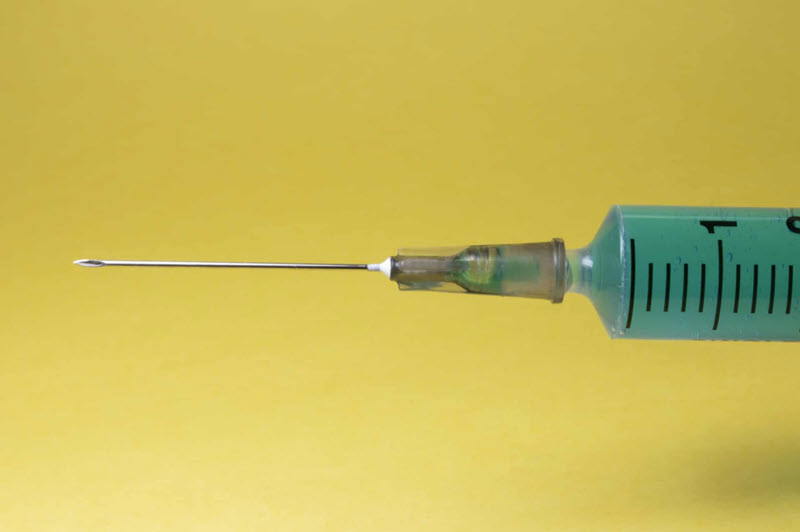
THE FOLLOWING IS AN EDUCATIONAL ARTICLE INTENDED TO HIGHLIGHT RECENT DEVELOPMENTS THAT MAY BE OF INTEREST TO PHYSICIANS AND OTHER HEALTHCARE PRACTITIONERS. IT IS NOT A LEGAL OPINION AND SHOULD NOT BE CONSTRUED AS LEGAL ADVICE. THE HEALTHCARE INDUSTRY IS CONSTANTLY CHANGING SO FACTS, CIRCUMSTANCES, RULES AND REGULATIONS MAY CHANGE THAT WOULD ALTER THE ANALYSES BELOW.
In recent weeks, the Texas Medical Board (“TMB”) has notified several physicians of complaints it has received alleging that the physician has been “aiding/abetting the unlicensed practice of medicine.” Specifically, the complaints allege that the physician is supervising midlevel practitioners (APRNs/PAs) who are “administering stem cells illegally in violation of HB 810” (emphasis added).
TMB, like all licensing boards, has a duty to investigate complaints that are filed against its licensees. After receiving a complaint, TMB notifies the physician identified in the complaint, who is then given an opportunity to “furnish a narrative” responding to the allegations. Many complaints are dismissed at this stage, without TMB having ever initiated a formal investigation. In other words, these complaint letters do not necessarily indicate discipline is forthcoming. Nevertheless, they are a troubling development.
The most pressing question is whether TMB’s reference to midlevel practitioners “administering stem cells illegally in violation of HB 810” is a mere restatement of the complaint it received (which is certainly possible) or whether it is telegraphing an aggressive new interpretation of HB 810 as precluding the delegation of all “stem cell” treatments.
The legislation referenced in TMB’s complaint, HB 810, was passed by the 85th Texas Legislature and became effective on September 1, 2017. This bill – nicknamed “Charlie’s Law” – concerned “investigational stem cell treatments” and specified that patients are only eligible to receive such treatments if they have “a severe chronic disease or terminal illness” and their physician has “considered all other treatment options currently approved by the [FDA] and determined that those treatment options are unavailable or unlikely to alleviate the significant impairment or severe pain associated with the severe chronic disease or terminal illness” and if their physician recommends or prescribes the treatment in writing. Tex. Health & Safety Code § 1003.053.
This statute defines “investigational stem cell treatments” as “adult stem cell treatment[s] that [are] under investigation in a clinical trial and [are] being administered to human participants in that trial [and have] not yet been approved for general use by the [FDA].” Tex. Health & Safety Code § 1003.051 (emphasis added).
Texas stem cell laws are not a model of clarity. Nevertheless, it has been widely presumed that HB 810’s onerous restrictions do not apply to the types of “stem cell” products most commonly used in regenerative medical clinics and integrated medical-chiropractic practices, which are regulated by the U.S. Food and Drug Administration (“FDA”) as Human Cells, Tissues, and Cellular and Tissue-Based Products (HCT/Ps) under Section 361 of the Public Health Service Act (PHSA). There are several reasons to conclude that HB 810 does not apply to these so-called “361 products.”
First, HB 810 specifically refers to treatments “not yet approved” by the FDA. 361 products do not require FDA approval; they must simply be registered with the FDA and comply with infection-control procedures. And because clinical trials are not required for 361 products, it seems unlikely such products would meet the definition of “investigational stem cell treatments” in HB 810.
Second, it is abundantly clear that the purpose of Charlie’s Law was to circumvent FDA restrictions and thereby increase patient access to certain stem cell treatments. Again, the particular FDA restrictions at issue in the legislation do not even apply to 361 products and interpreting the law in this way would necessarily decrease patient access to such products.
Third, TMB published a bulletin in May 2019 lamenting “concerns, highlighted by several recent news stories, related to a lack of proper supervision while patients are receiving treatment for certain cosmetic procedures and purported stem cell treatments.” Dr. Sherif Zaafran, M.D., FASA, Message From the TMB President: Mental Health Questions and Supervision Issues, TMB Bulletin, May 2019, at 2 (emphasis added). TMB’s concern relating to improper supervision, leads one to assume it believes that the procedure is, in fact, delegable under proper supervision. If HB 810 applies to every type of “stem cell” product, the use of all such products is restricted to physicians only, and it would therefore be illegal to delegate the administration of any “stem cell” product to a midlevel practitioner. If that were the case, it seems unlikely that TMB would suggest it is concerned about “a lack of proper supervision” when such treatments are delegated.
Fourth, 361 products have been in widespread use in Texas and are commonly administered by midlevel practitioners. HB 810 became effective nearly two years ago, and until recently it did not appear that TMB was concerned about the legality of this arrangement.
In short, a plain reading of the statute, a basic understanding of the legislative intent of Charlie’s Law, the recent statement published by TMB in its May 2019 bulletin, and common sense all suggest that HB 810 does not preclude a physician from delegating the administration of 361 products to midlevel practitioners. However, it is possible that TMB and/or a reviewing court might disagree with this analysis and subject delegating practitioners to discipline. Time will tell.

